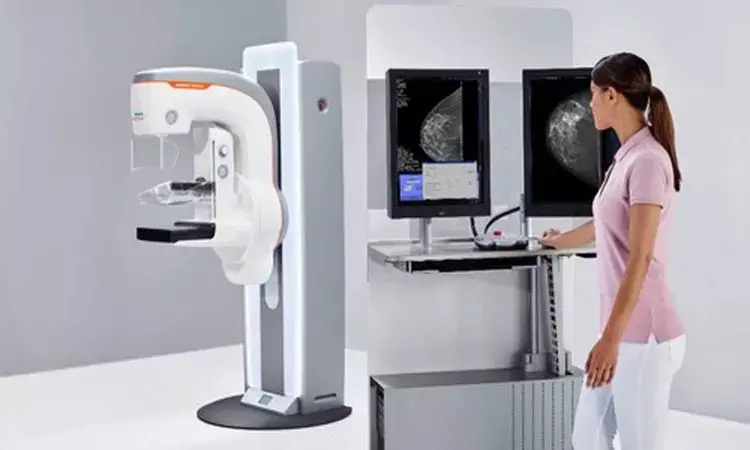- Home
- Medical news & Guidelines
- Anesthesiology
- Cardiology and CTVS
- Critical Care
- Dentistry
- Dermatology
- Diabetes and Endocrinology
- ENT
- Gastroenterology
- Medicine
- Nephrology
- Neurology
- Obstretics-Gynaecology
- Oncology
- Ophthalmology
- Orthopaedics
- Pediatrics-Neonatology
- Psychiatry
- Pulmonology
- Radiology
- Surgery
- Urology
- Laboratory Medicine
- Diet
- Nursing
- Paramedical
- Physiotherapy
- Health news
- Fact Check
- Bone Health Fact Check
- Brain Health Fact Check
- Cancer Related Fact Check
- Child Care Fact Check
- Dental and oral health fact check
- Diabetes and metabolic health fact check
- Diet and Nutrition Fact Check
- Eye and ENT Care Fact Check
- Fitness fact check
- Gut health fact check
- Heart health fact check
- Kidney health fact check
- Medical education fact check
- Men's health fact check
- Respiratory fact check
- Skin and hair care fact check
- Vaccine and Immunization fact check
- Women's health fact check
- AYUSH
- State News
- Andaman and Nicobar Islands
- Andhra Pradesh
- Arunachal Pradesh
- Assam
- Bihar
- Chandigarh
- Chattisgarh
- Dadra and Nagar Haveli
- Daman and Diu
- Delhi
- Goa
- Gujarat
- Haryana
- Himachal Pradesh
- Jammu & Kashmir
- Jharkhand
- Karnataka
- Kerala
- Ladakh
- Lakshadweep
- Madhya Pradesh
- Maharashtra
- Manipur
- Meghalaya
- Mizoram
- Nagaland
- Odisha
- Puducherry
- Punjab
- Rajasthan
- Sikkim
- Tamil Nadu
- Telangana
- Tripura
- Uttar Pradesh
- Uttrakhand
- West Bengal
- Medical Education
- Industry
Mammograms May Benefit Women Well Into Their 80s, UCLA Study Finds

For many older women, the question of whether to continue breast cancer screening has been uncertain. While most guidelines recommend mammograms up to age 74, advice for women 75 and older has been less clear. Now, a new study from researchers at the UCLA Health Jonsson Comprehensive Cancer Center suggests that regular mammograms may still offer significant benefits for women in their 80s.
The study, published in the Annals of Surgical Oncology, found that women in their 80s who get regular mammograms are more likely to have breast cancer detected early, need less aggressive treatment and live longer.
“When cancer is found on screening, it is often early stage,” said Dr. Nimmi Kapoor, an associate professor of surgery at the David Geffen School of Medicine at UCLA and senior author of the study. “In postmenopausal women with the most common hormone-sensitive breast cancers, we can often omit sentinel lymph node biopsy, chemotherapy, and sometimes even radiation. Screening is especially important in this era of de-escalation because early detection allows us to safely reduce the intensity of treatment while still achieving excellent outcomes.”
The number of older adults in the U.S. has grown rapidly over the past decade, and age is a major risk factor for breast cancer. As a result, determining the most effective way to screen older women has become increasingly important, the researchers noted. Yet guidance is limited, leaving many women and their doctors uncertain about when to continue or stop routine mammograms. Screening in older women also raises concerns about overdiagnosis, when cancers are detected that may never cause problems, and the associated costs.
With limited data on the benefits of mammography for women over 80, the researchers set out to compare outcomes between those who continued regular screening and those who did not.
The team analyzed medical records of 174 women aged 80 and older who were diagnosed with breast cancer at UCLA between 2013 and 2020. Most cancers were estrogen receptor–positive and HER2-negative and were mostly stage 1 or 2. Patients were divided into two groups: Those who had a mammogram within two years before their diagnosis (98 women) and those who did not (76 women). They then compared outcomes —including cancer stage at diagnosis, treatment intensity, and overall survival— between the two groups.
They found that women who did not have regular mammograms were more likely to have tumors that were advanced, high-grade or noticeable by touch. Screened women were more likely to have surgery to remove the tumor, while unscreened women sometimes omitted surgery altogether.
After a median follow-up of 55 months, they found women who were screened had a 55% lower risk of their cancer returning and a 74% lower risk of dying compared with women who were not screened. These advantages remained even after accounting for age, tumor type, and whether they had surgery.
"We were surprised to see such a significant survival difference among these women in their 80s," said Kapoor, who is also an investigator in the UCLA Health Jonsson Comprehensive Cancer Center. "Our findings underscore the importance of encouraging breast cancer screening in elderly patients, regardless of age, unless they have more pressing health issues. Current guidelines are vague and often left to the provider’s discretion, so studies like ours help provide much-needed data for this underrepresented population."
While the findings are encouraging, the researchers noted some limitations. The study looked back at medical records and only included women who were ultimately diagnosed with breast cancer, so it doesn’t capture potential downsides of screening, such as false positives, extra tests, or the emotional and financial stress on patients and their families. Larger studies are needed to confirm the benefits of mammograms for older women and to guide clearer screening recommendations.
Reference:
Siu‑Yuan Huang, Impact of Screening Mammography on Breast Cancer Outcomesin Women Aged 80 Years and Over, Annals of Surgical Oncology, https://doi.org/10.1245/s10434-025-18288-4
Dr Kamal Kant Kohli-MBBS, DTCD- a chest specialist with more than 30 years of practice and a flair for writing clinical articles, Dr Kamal Kant Kohli joined Medical Dialogues as a Chief Editor of Medical News. Besides writing articles, as an editor, he proofreads and verifies all the medical content published on Medical Dialogues including those coming from journals, studies,medical conferences,guidelines etc. Email: drkohli@medicaldialogues.in. Contact no. 011-43720751


